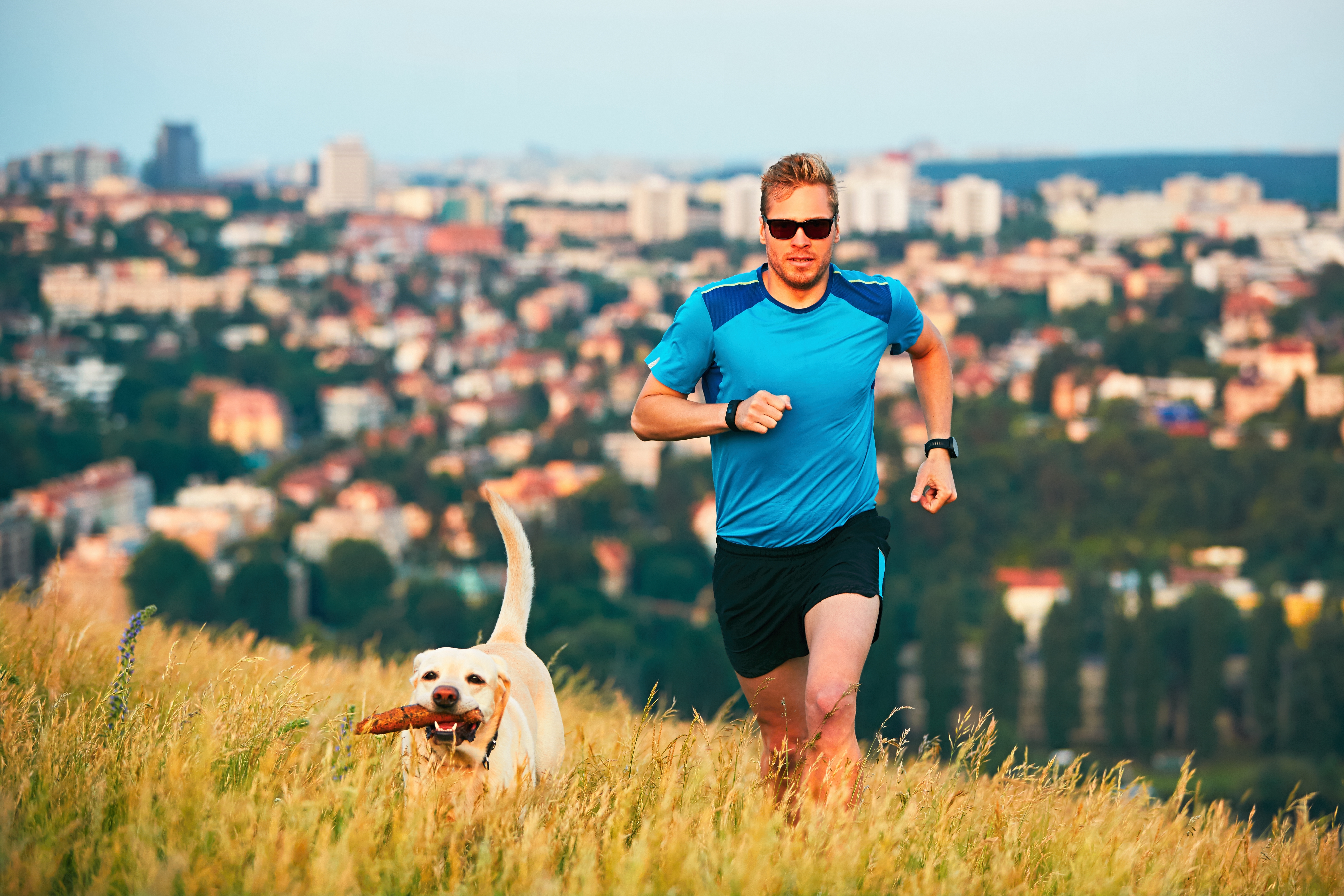
When training becomes a bit of a chore, it can seem hard to regain your focus and positivity – so why not try livening things up by running with the dog?
We all know that man’s best friend loves an adventure, and by bringing them along you can mix up your training and help them to stay fit in the process.
So if you’re interested in taking your canine partner out for a quick jog, do things properly and safely by following the helpful guidelines below.
Be sensible
Health first
Before you start setting off on 20-milers with your new running buddy, consider their age and health. Your dog should be at least 18 months old so they have stronger and better-developed bones for this type of exercise.
If you have a more mature dog that has breathing, mobility or joint issues – stick to walks. And if your dog is overweight, you should get them checked out by a vet first. You will also need to build up the distance slowly, of course.
Start small
Beginner dogs are like beginner adults, they need to start small if new to running. Often our four-legged friends seem full of energy, but that doesn’t necessarily mean they are ready to join you on your sub-35 minute morning 10K.
Build up your mileage together over time. Gentle jogging for short distances on soft ground is a good starting point for young dogs. And when their fitness start to improve, so will your powers as a running duo.
Don’t take risks
Breed careful
Be cautious of how your dog’s breed and weight may make them more prone to overheating or joint discomfort. Overweight and older dogs, as well as those suffering from heart disease, are more likely to be affected.
Look for healthy supplements if need-be. AniForte’s ‘Mobility Wonder’ tablets are high in pure collagen, green-lipped mussels, devil’s claw, olibanum and omega-3 as these ingredients counteract deficiencies, which can cause joint wear.
Stay cool
Dogs are much more sensitive to heat, and it is more difficult for them to cool down – they can’t sweat so they lose heat through their paws and panting. You really need to be careful that they don’t suffer from heat exhaustion.
So, avoid running if it’s a very warm day. If your dog stops, don’t encourage them to do more than they are able to – and make sure they’re drinking as much, if not more, than you do during the run.
Fuel them well
Fuel right
Food should be good quality and easily digestible. The digestibility of protein and fat is important if you are regularly running with your dog; High protein leaves less room for upset digestion and intolerances to cereals and grains.
It’s advisable to try to feed around four hours before exercise; this should aid endurance and give some time for your dog to empty its bowels before running. It’s also recommended that you give your dog a small snack within two hours after running.
Expert advice provided by AniForte’s head nutritionist, Katrin Scholz.





